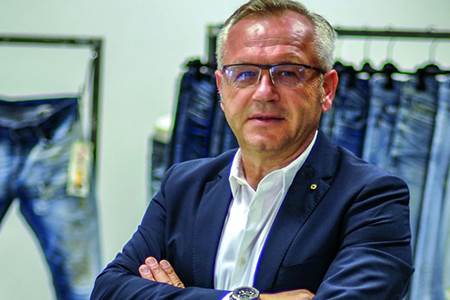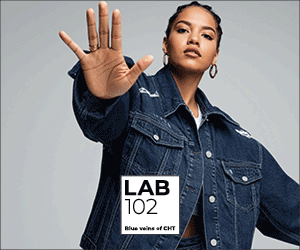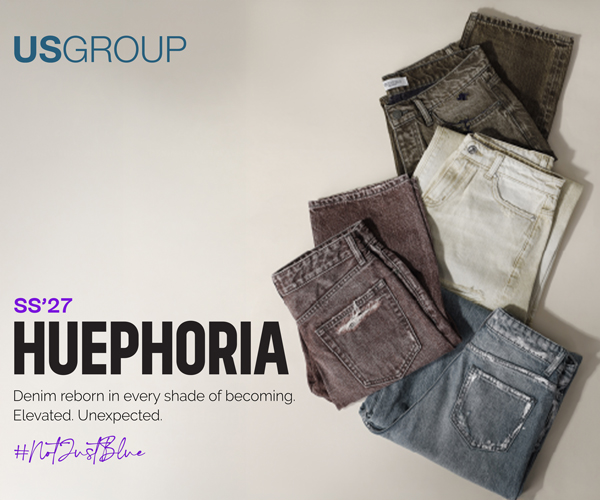Luigi Lovato: Apart from a few excellent exceptions, the brand/supplier relationship looks less like a partnership and more like a bargain market

The supply chain needs the flexibility and backing to invest in research and technology, if it is to deliver the improvements future consumers will demand, says the CEO of jeans maker Elleti. The Italian group has invested in wash technlogies that will help it to deliver greener product through quicker and safer production processes, and will roll these out across its facilities.
Can you tell us briefly about the Elleti Group and the set-up. What do you offer to your customers?
Elleti Group is an Italian company operating in Italy, Tunisia and Romania. Thanks to our vertical organisation in each country, we offer our customers a tailored service in terms of product, price and logistics. Many of them choose to work in more than one of our facilities, combining all the advantages that different productive locations under one centralised management can offer, such as a wider product portfolio and pricing range. In terms of sourcing strategy, this means having the possibility to cherry-pick the best options that the Euro-Mediterranean supply chain can offer.
Which technologies and processes does Elleti use to help it stand out?
Elleti Group combines the mastery in the traditional textile technologies with an open innovation approach that has always driven our internal development. The newest process that we have added to our laundry is the revolutionary Wiser Wash process. This, in a nutshell, is simply the greenest laundry process on the market, drastically reducing the consumption of water and eliminating all dangerous chemicals used in traditional laundry treatments, such as chlorine and permanganate. This revolutionary technology has already been chosen by some customers of ours, big players in the fashion industry, that have relied on our first Wiser Wash Hub to develop some special collections. Based in Italy, this facility is a model factory that we’ll soon replicate in Tunisia and Romania.
The Museum of Denim Elleti (MODE) and denim archive Stadium is open to the public, and houses around 15,000 denim garments. Why did Elleti choose to create this incredible collection, what does it offer to designers?
The MODE and the Stadium are our homage to the history and evolution of the denim product and the industry that revolves around it. The museum houses 108 historical second-hand pieces that date back to the beginning of the 19th century, and offers an overview of the evolution of our society and its approach to what we wear, as well as a perspective that anyone who’s working on the development of tomorrow’s jeans must take into account.
The Stadium is more of a practical tool for fashion professionals. It gathers more than 15,000 unique pieces that represent over 40 years of Elleti Group’s industrial R&D commitment, allowing designers and fashion professionals to access, hands on, one of the widest denim collections open to the public.
Can you tell us about the partnership with Wiser Wash – how it works and what benefits it brings?
The Wiser Wash Network is a network gathering some of the most dedicated sustainable companies in the denim business. Sharing the goal of a cleaner denim makes it easy to co-operate also in terms of research, thanks to a constant flow of ideas, innovations and new perspectives. This partnership also helps us to spread a positive message about the need for sustainability in the fashion system, presenting to the market a clear and focused solution to keep improving the environmental impact of future productions.
How do you see the fashion and denim market changing over the next few years?
I think that most of the main changes that will shape our industry in the future are already happening, even if they are just in their initial stage. Consumers’ need for sustainable clothing will only get more and more crucial in the selling process, so the companies that will intercept this request without compromising on their look’s authenticity and brand identity will be for sure among the winners of tomorrow’s fashion industry. At the same time, a renewal of the supply chain is already happening to fulfill the request for a greener and high-quality product through quicker and safer production processes. Shortening and crisis-proofing the fashion supply chain will answer both consumers' and brands' demand for shorter time-to-market without relying only on the fast-fashion system.
Is there anything you’d like to change about the industry? What are your hopes for the future?
The evolution of the fashion system over the last 10 or even 20 years led the sourcing process in this industry to become very much like commodities sourcing. With some excellent exceptions, the brand/supplier relationship looks less like a partnership and more like a bargain market. In a field that requires tons of research and an incredible flexibility, this has limited the ability of the supply chain to efficiently provide exciting products and ever-improving quality to the final consumer.
In the near future, I hope to see the union of intent and commitment between brands and supplier becoming the key in the research of an ethical and efficient sourcing strategy, that is now mainly based on collecting certificates instead of focusing on building the foundations for a long and stable mutual improvement. In this scenario, the value that could be created for the consumer would be exponentially higher than today’s.













